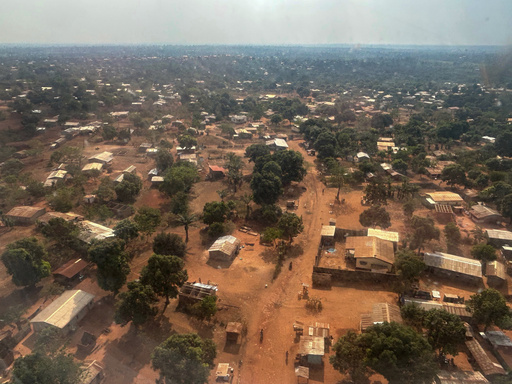
The United Kingdom has made allegations against Russia, proposing that Moscow is plotting to disrupt the forthcoming elections in the Central African Republic (CAR). The U.S. government has also suggested that Russia aims to exploit the country’s abundant gold and diamond resources.
Russia’s Deputy Ambassador to the United Nations, Anna Evstigneeva, countered these accusations during a meeting of the U.N. Security Council, expressing her astonishment that representatives from the U.S. and the U.K. continue their efforts to tarnish Russia’s reputation.
The Central African Republic has been embroiled in conflict since 2013, when a group of predominantly Muslim rebels ousted then-President François Bozizé. Since then, the country has seen the entry of Kremlin-backed Wagner mercenaries, who promised to combat rebel forces and restore order, thereby strengthening military and government ties from Moscow.
During the council session, the U.N. special envoy for CAR, Valentine Rugwabiza, highlighted the upcoming elections as a critical chance to enhance state authority, establish decentralized governance, and tackle the fundamental causes of ongoing conflict within the nation.
Britain’s Deputy U.N. Ambassador, James Kariuki, echoed this sentiment, noting that the elections represent a pivotal moment for increasing political engagement among the citizens of CAR. However, he also claimed that the U.K. possesses information indicating that Russian state-directed proxies are planning to interfere with the electoral process. He pointed to potential strategies such as suppressing political discourse and launching disinformation campaigns, although he did not provide specific details or evidence to support his claims.
Kariuki expressed concern that these proxies, whose identities he did not reveal, are ignoring the sovereignty of CAR to further their destabilizing aims and jeopardize a U.N. Security Council initiative aimed at fostering equitable, free, and transparent elections.
John Kelley, the U.S. Minister-Counselor, reiterated the significance of the U.N. peacekeeping mission in CAR, known by its acronym MINUSCA, as a crucial and economically sensible means to uphold the nation’s independence and sovereignty. He mentioned that MINUSCA could play a vital role in enhancing security, working collaboratively with the government to strengthen state authority, and establishing conditions necessary for peace and economic advancement, alongside monitoring human rights issues.
Regrettably, Kelley stated that Russia-associated individuals pretending to be security allies are undermining the authority of the Central African Republic and sabotaging peace efforts with the ulterior motive of extracting the nation’s resources without contributing to its growth. He commented that such manipulative actions are detrimental to civic freedoms and obstruct the progression of democracy.
In response, Evstigneeva defended the CAR government, asserting that, with support from the U.N. and its partners, significant strides have been made in recent years to combat illegal armed groups and maintain state control over 90% of the country’s territory. She affirmed Russia’s commitment to providing further comprehensive assistance to CAR on a foundation of mutual respect and equality, ultimately aiming for lasting peace and security.

